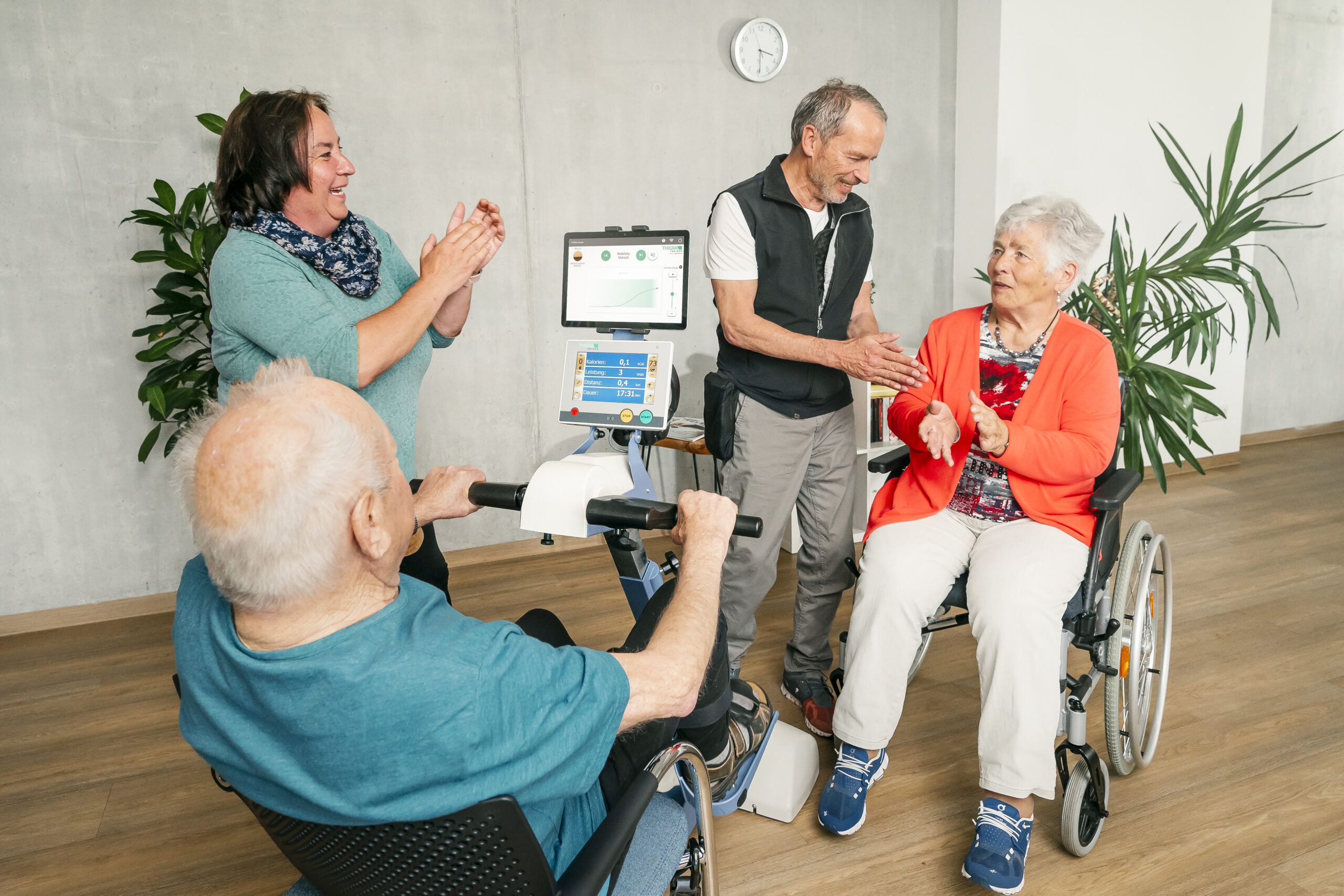
The power of music
Hochdorf, 13.07.2022 (PresseBox) – Due to demographic change, age-related brain diseases such as Dementia, Parkinson’s disease and Stroke are on the increase. Movement therapy is important to counteract the consequences of such serious illnesses. If life gets out of sync in such a way, therapists are increasingly relying on the power of music to promote motor learning processes. The German medical technology company THERA-Trainer and the Max Planck spin-off JYMMiN have developed a novel app called THERA-music for this purpose.
Regular movement therapy is essential for people with neurological diseases to regain and promote mobility and independence. Neuroscientific findings prove this: To promote the regeneration and reformation of neural pathways in the brain, exercise must be as intense as possible and practiced with high repetition of movements. To achieve this, therapists are increasingly relying on the power of music.
"Rhythms and sounds are neurobiologically anchored surprisingly deep in the human brain," explains neuroscientist Prof. Dr. Thomas Fritz of the Max Planck Institute for Human Cognitive and Brain Sciences in Leipzig. With his research group, he has intensively researched the influence of music on movement and physical exertion and put the findings into practice. The Leipzig-based start-up JYMMiN, in which Fritz is involved, transforms movements into music. Using responsive sensor technology on sports equipment (like that found in fitness centers), workouts can be translated into harmonic rhythms and melodies.
In future, this fitness innovation from the heart of Germany’s state of Saxony is also expected to release particular feelings of wellbeing during therapy for patients with neurological conditions. In cooperation with THERA-Trainer, the invention has been successfully applied to rehabilitation. Even non-ambulatory people sitting in a wheelchair can produce a wide variety of sounds by cyclic movements of their arms and legs on a THERA-Trainer. For this purpose, the newly developed THERA-music software processes the sensor data of the rehabilitation equipment into an individual accompanying music. This can be individually arranged by the activity of the exercising person and turns even strenuous workout sessions into an effortlessly moving experience.
Fritz also explains that exercising will be more effective because the combination of physical exercise and the music stimulates the endorphins in such a way that patients reach their perceived peak of exertion at a later point. Patients will therefore experience the training as more joyful and less strenuous. The researchers and developers therefore rightly speak of a world first, because comparable systems have not yet been available for rehabilitation.
Pressebox